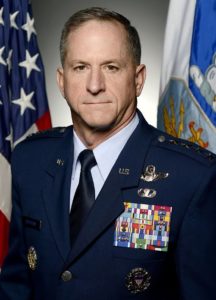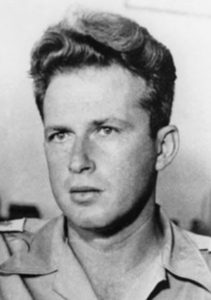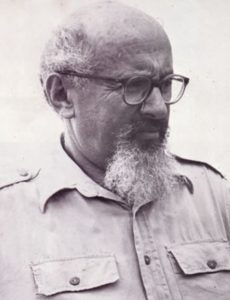Chief of America’s Air Force

General David Goldfein
David Goldfein (b. 1959) was born on an American Air Force base in France, where his father served as an Air Force colonel. Goldfein became a fighter pilot, too, and graduated from the US Air Force Academy with a degree in philosophy. He first saw action in the Gulf War, then served as commander of the 555th Fighter Squadron in the Bosnian War, and during NATO’s Operation Allied Force in Yugoslavia. On one mission in 1999, Goldfein’s F-16 was shot down. He ejected on time and parachuted down in a field. Three Serbian soldiers pursued him, but he managed to escape, hiding in a ravine. Goldfein miraculously traversed an area full of mines, before later being rescued from behind enemy lines in a daring operation. All in all, Goldfein logged over 4200 hours of flying time. In 2011, he became a three-star general and was appointed commander of US Air Forces in Southwest Asia. In 2016, now a four-star general, Goldfein was appointed the 21st Chief of Staff of the United States Air Force. That made him the highest-ranking official in the Air Force, overseeing half a million airmen, over 5000 aircraft, and hundreds of intercontinental ballistic missiles. As Chief of Staff, he directly advises the secretary of defense and the president. Goldfein’s primary goal as head of the Air Force was to ensure the US was secure from, and had detailed plans for countering, the “four-plus-one” threat: China, Russia, Iran, North Korea, and violent extremist groups around the world. He also focused heavily on nuclear deterrence and preventing a catastrophic world war. Finally, he expanded the Air Force’s capabilities into the realms of cyberwarfare and space, too. It was during his tenure that ISIS was essentially wiped off the map and finally defeated, thanks in large part to the US Air Force. Goldfein has been decorated with the Distinguished Flying Cross, the Legion of Merit, Humanitarian Service Medal, and countless other awards. His term as Chief of Staff ends next week.
Words of the Week
Experience shows us that many people imagine false ideas to be absolutely true, and they generally remain firm in their beliefs, refusing to see anything wrong with them.
– Rabbi Moshe Chaim Luzzatto (1707-1746), Derekh Tevunot


